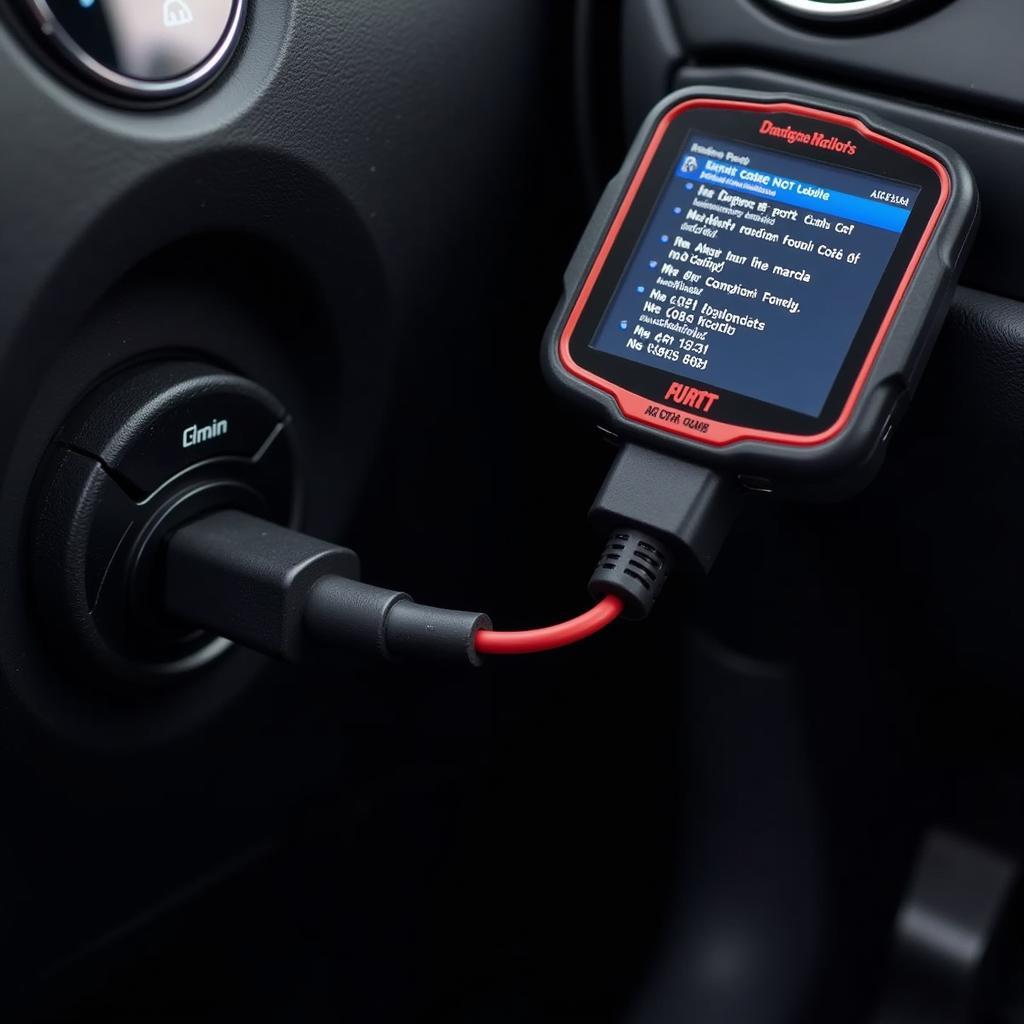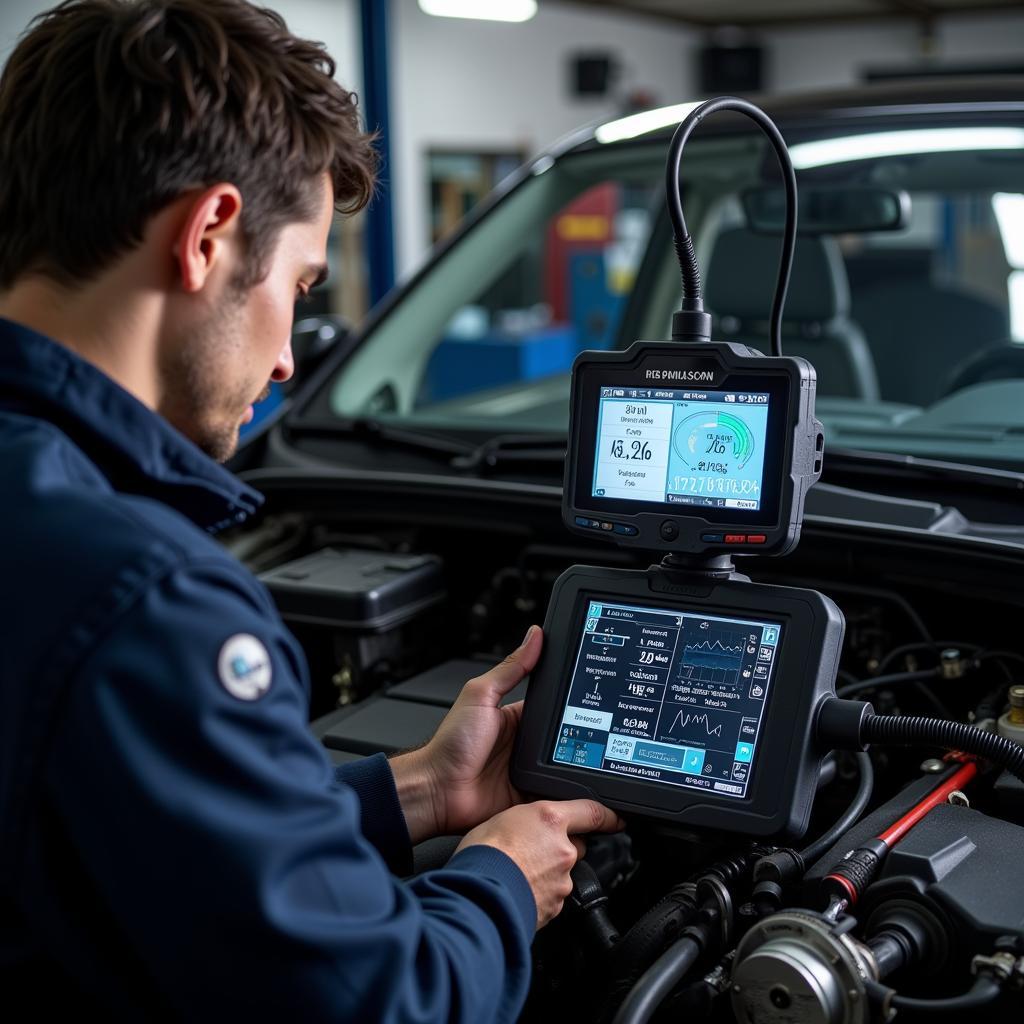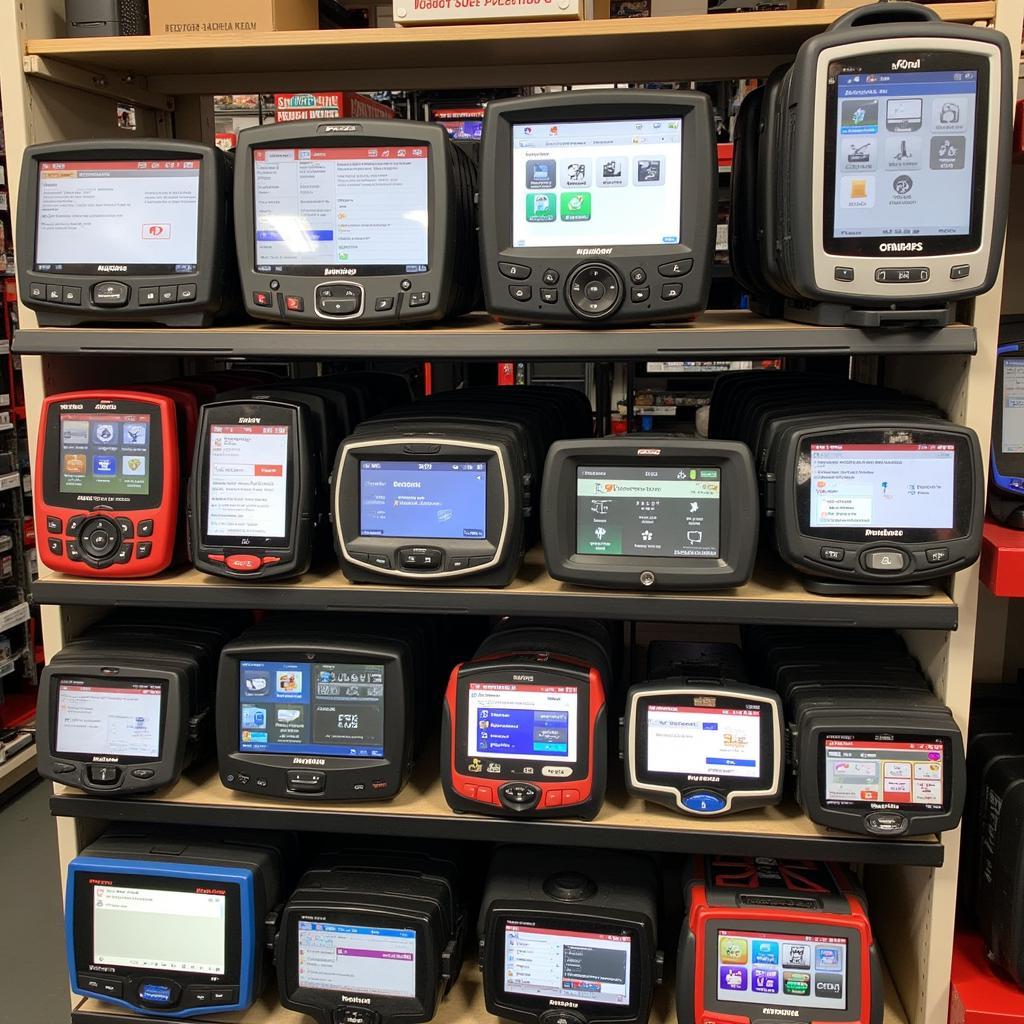A Diagnostic Unit For Cars, also known as a car code reader or scan tool, is an essential tool for any car owner or mechanic. It allows you to communicate with your car’s computer, retrieve diagnostic trouble codes (DTCs), and understand the health of your vehicle’s various systems.
Understanding Car Diagnostic Units
Modern vehicles are equipped with complex electronic systems that control everything from engine performance to safety features. When a problem arises, the car’s computer, also known as the Engine Control Unit (ECU), stores a DTC that identifies the nature of the issue. This is where a diagnostic unit comes in handy.
 Car diagnostic unit connected to OBD port
Car diagnostic unit connected to OBD port
Types of Diagnostic Units for Cars
There are various types of car diagnostic units available, ranging from basic code readers to professional-grade scan tools.
- Basic Code Readers: These affordable units can read and clear basic DTCs. They are ideal for car owners who want to perform simple diagnostics and troubleshoot common problems.
- Advanced Code Readers: These units offer additional features such as live data streaming, which allows you to monitor real-time sensor data from your car.
- Professional Scan Tools: Used by mechanics and automotive professionals, these high-end units provide comprehensive diagnostic capabilities, including advanced coding and programming functions.
Benefits of Using a Diagnostic Unit
- Early Problem Detection: By identifying issues early on, you can prevent minor problems from escalating into major and costly repairs.
- Cost Savings: Diagnosing problems yourself can save you money on expensive mechanic fees.
- Improved Vehicle Performance: By understanding and addressing DTCs, you can optimize your car’s performance and fuel efficiency.
- Increased Resale Value: A well-maintained car with a documented service history has a higher resale value.
 Mechanic using a diagnostic unit in a garage
Mechanic using a diagnostic unit in a garage
How to Choose the Right Diagnostic Unit
When choosing a diagnostic unit for your car, consider the following factors:
- Your Budget: Determine how much you are willing to spend on a unit.
- Your Skill Level: Choose a unit that matches your technical expertise.
- Your Vehicle’s Make and Model: Ensure compatibility with your specific car.
- Features and Functionality: Consider the features that are important to you, such as live data streaming, ABS diagnostics, and airbag system analysis.
Common Uses of Car Diagnostic Units
- Reading and Clearing DTCs: Identify and clear fault codes stored in the ECU.
- Live Data Monitoring: Observe real-time sensor data to diagnose problems.
- Component Activation: Test individual components, such as actuators and solenoids.
- ECU Programming: Update or reprogram the car’s ECU (for advanced users).
FAQs about Diagnostic Units for Cars
Q: Can I use any diagnostic unit on my car?
A: Not all diagnostic units are compatible with all car makes and models. It’s crucial to choose a unit that is compatible with your specific vehicle.
Q: Are diagnostic units difficult to use?
A: Basic code readers are generally user-friendly, while advanced units may require some technical knowledge.
Q: Can I fix any problem with a diagnostic unit?
A: Diagnostic units help identify problems, but they don’t fix them. You may need to consult a mechanic for repairs.
 Different types of car diagnostic units for sale
Different types of car diagnostic units for sale
Conclusion
A diagnostic unit for cars is an invaluable tool for any car owner or mechanic. It empowers you with the knowledge to understand and address your vehicle’s health, ultimately saving you time, money, and potential headaches down the road. When choosing a unit, consider your needs, budget, and the specific requirements of your vehicle.
Need help with car diagnostics in Hull? Contact us at WhatsApp: +1(641)206-8880 or Email: [email protected]. Our team is available 24/7 to assist you.

Leave a Reply